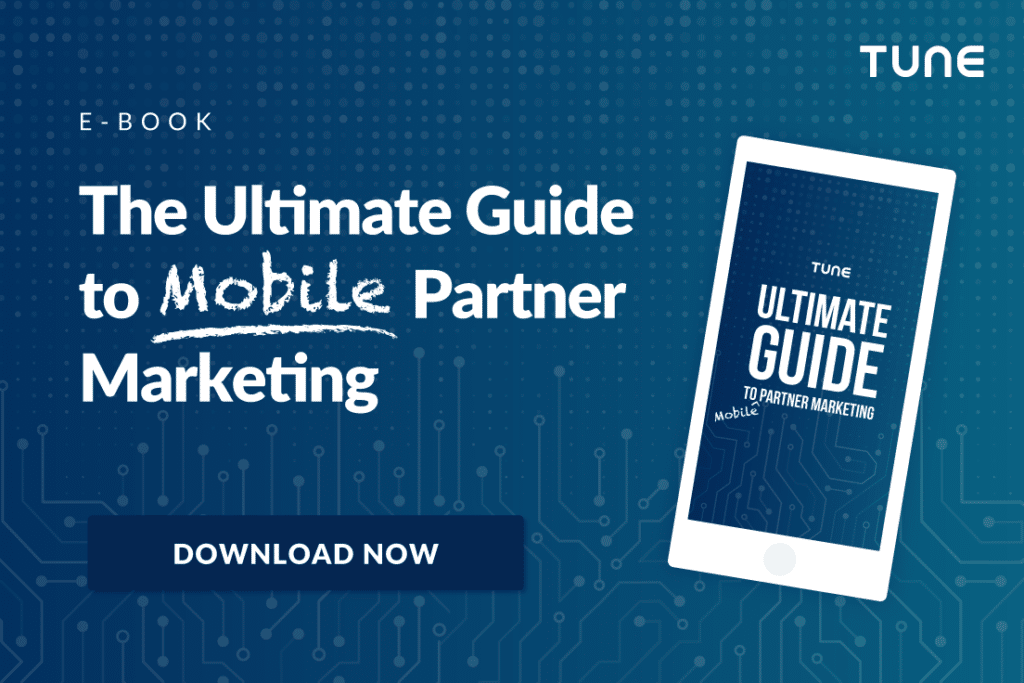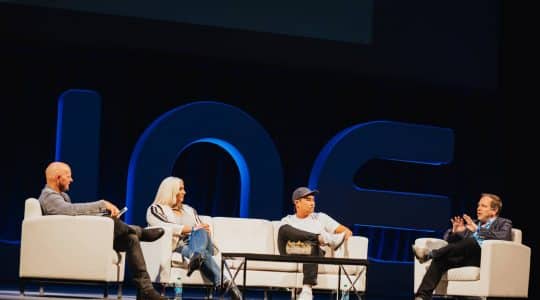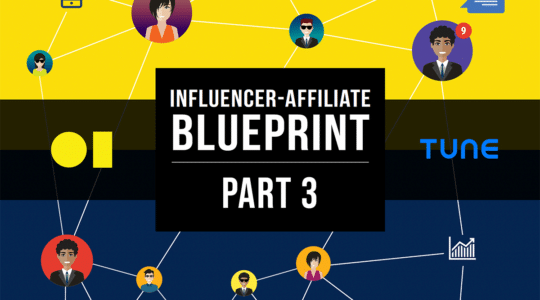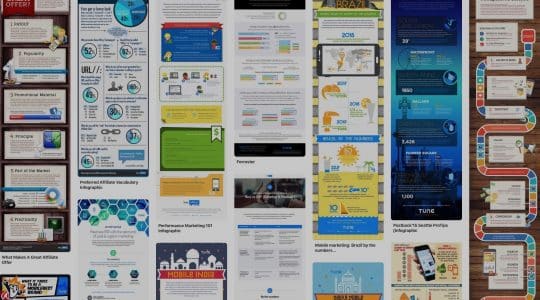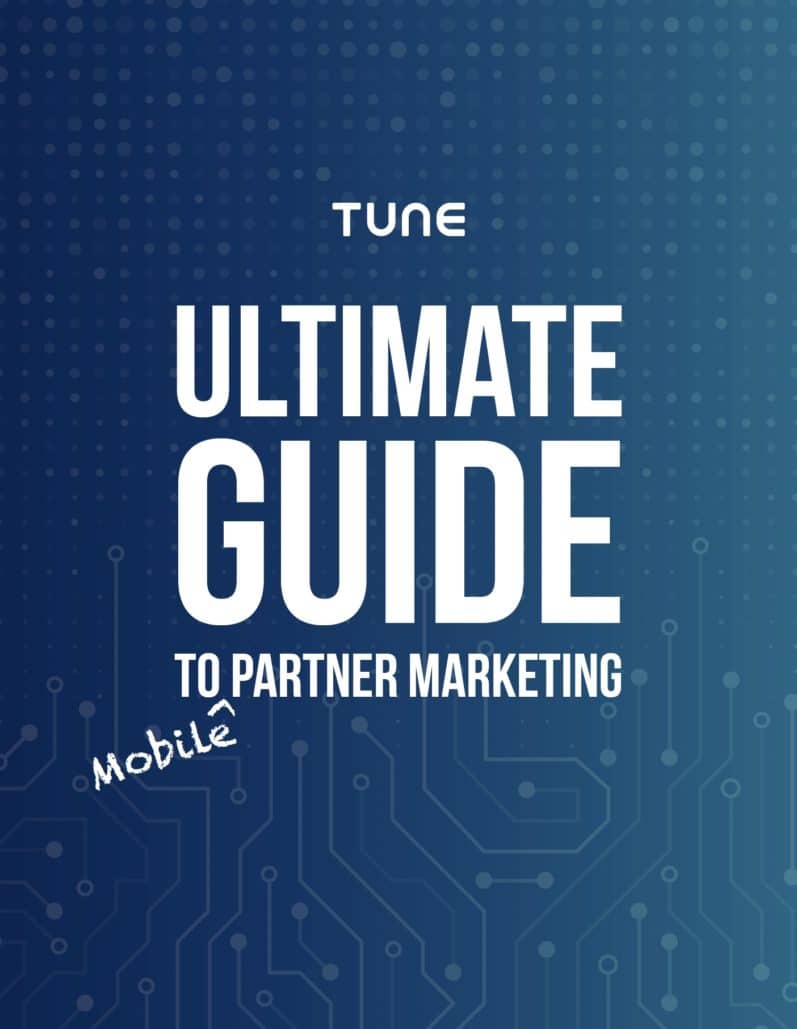
Welcome to Part 3 of our Mobile Partner Marketing blog series! In this series, we are covering some of the insights and information found in our newest e-book, The Ultimate Guide to Mobile Partner Marketing. Whether you manage an affiliate program or run marketing for mobile apps, this e-book can help you bridge the knowledge gap between the two to unlock their full potential.
In Part 1, we introduced the guide and outlined what readers can learn from it about mobile marketing and affiliate programs. Part 2 explains the similarities and differences between a mobile measurement partner and a partner marketing platform.
In Part 3 of our series, we’re reviewing the why behind the what of mobile partner marketing: why apps are critical to a program’s success. Let’s get started.
Why Mobile App + Affiliate Program = Success
In short? Synergy.
As the saying goes, the whole is greater than the sum of its parts. A mobile app on its own can be valuable. An affiliate program, even when run separate from other marketing efforts or in a silo, can also be valuable.
Real return on investment, however, happens when you put the two together.
While there are lots of benefits brands see when they combine the power of mobile apps with the guaranteed ROI of performance marketing, we think the following are the most impactful.
Closer Relationships with Customers
A huge advantage to using mobile apps in your partner marketing strategy is being able to foster better relationships with your customers. Push notifications, location-based marketing, and a wealth of personalization options make this possible.
Take push notifications. They are efficient, customizable, and always front-and-center on a smartphone user’s screen — unlike, say, an email that sits ignored in an inbox. This adds up to a channel that often outperforms email, the traditional choice of brands for communicating with customers:
- In 2021, the average email open rate was around 22%, while the average push notification open rate was 28%. (Source: Campaign Monitor, Omnisend)
- A push notification sent to new subscribers in the first week following app installation can increase retention rates by up to 71%. (Source: Invespcro)
- In 2021, email campaigns had an average conversion rate of 0.1%, while 38% of people who clicked on a push message went on to make a purchase. (Source: Omnisend)
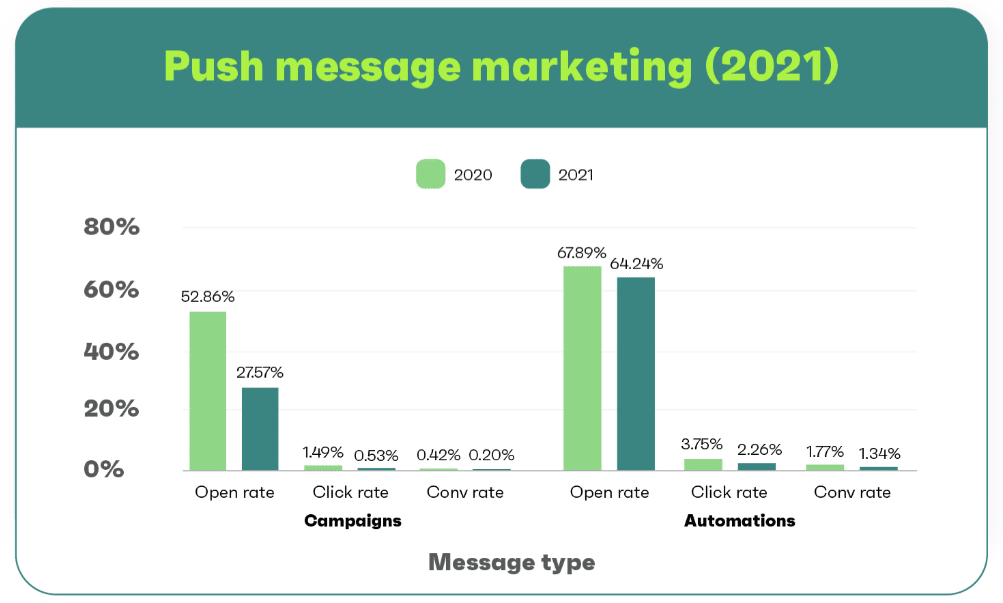
The depth of personalization that a mobile app can provide also brings programs and partners closer to their customers by helping to give them more of what they want. Using mobile app data like engagement and location, brands can tailor messages, share proximity-based offers, and suggest relevant content for smartphone users in ways that other channels can’t.
Better Experiences for Users
When it comes to user experience, mobile apps have technological advantages over mobile websites. It’s ideal for a user to be deep linked directly where they want to go in an app, instead of redirected to a clunky mobile webpage or left hanging with a broken link. This is why the mobile app ecosystem leads to both higher conversion rates and higher spending in apps when compared to mobile web. (One example: as effective as push notifications can be, the click-through rate for in-app messages is 25–30X higher.)
Today’s consumers expect smooth, intuitive, native experiences when engaging with brands on mobile. Anything less, and you risk frustrating and ultimately losing your customers.
Historically, though, affiliate marketers have shied away from using mobile apps to their full potential. This is because tracking links can introduce challenges when used across operating systems (such as iOS and Android) and experiences (such as mobile web to mobile app). Today, there are solutions and partners available that can handle these and other app-specific challenges for affiliate programs. TUNE has integrations with all of them.
ROI that Proves Program Performance
The amount of time U.S. consumers spend on the internet continues to rise every year. As it does, the gap between mobile device and desktop usage is widening, with a growing majority of time spent on mobile, and time on desktop steadily falling.
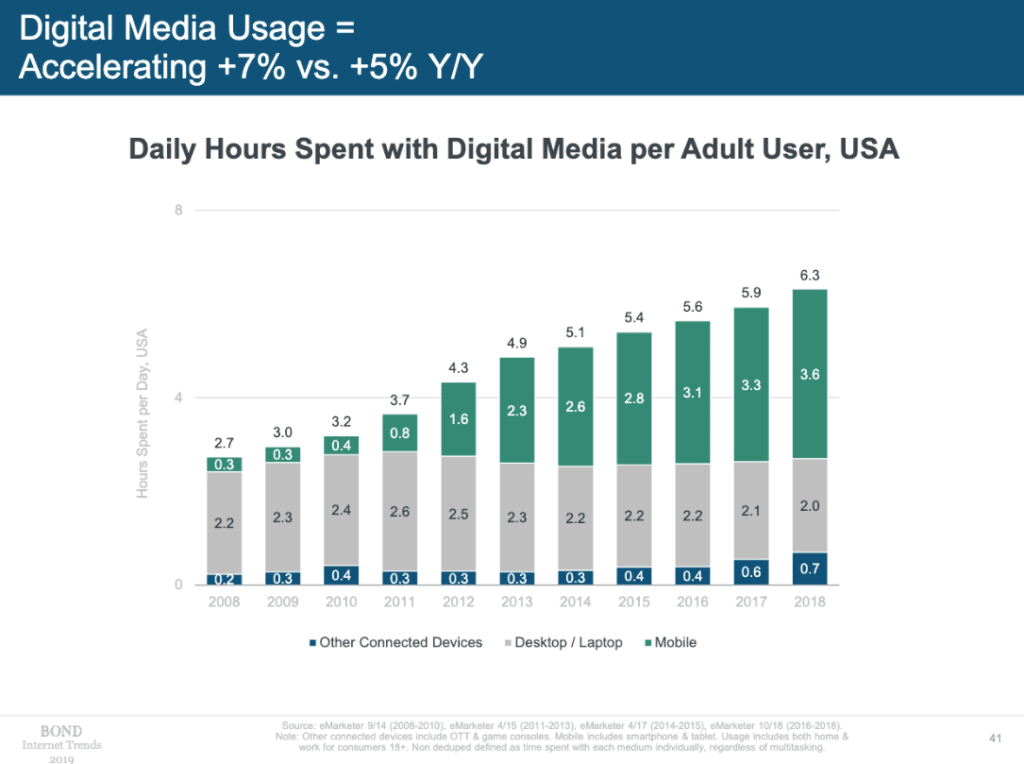
Source: Mary Meeker’s Internet Trends Report, 2019
By 2018, retailers with shopping apps and mobile websites were already seeing their apps bring in double the revenue when compared to mobile web. What’s more, their apps were driving nearly as many sales as desktop and mobile web combined. By 2020, almost 90% of all mobile internet time was spent in apps. In 2021, in-app spending increased 55% year over year, and e-commerce app installs increased 48%.
Too often, the affiliate programs associated with these numbers (and by extension, the marketers who run them) are not getting enough credit for their efforts. Fortunately, marketers can combat unattributed channel performance from mobile apps with technologies like server-side tracking. Adding another revenue stream to a program boosts its value, and proving the program’s contributions to the overall business can help secure the budget needed to make it an even bigger success.
Just like we said: synergy.
Stay TUNEd to See What’s Next
We’ll be back with Part 4 in a few weeks. Until then, check out the TUNE Blog for more information on mobile partner marketing, or download the full e-book here.
Whether you manage an affiliate program or run mobile acquisition campaigns, this e-book will help you bridge the knowledge gap between mobile and affiliate to unlock their full potential.
Author
Becky is the Senior Content Marketing Manager at TUNE. Before TUNE, she handled content strategy and marketing communications at several tech startups in the Bay Area. Becky received her bachelor's degree in English from Wake Forest University. After a decade in San Francisco and Seattle, she has returned home to Charleston, SC, where you can find her strolling through Hampton Park with her pup and enjoying the simple things in life.

